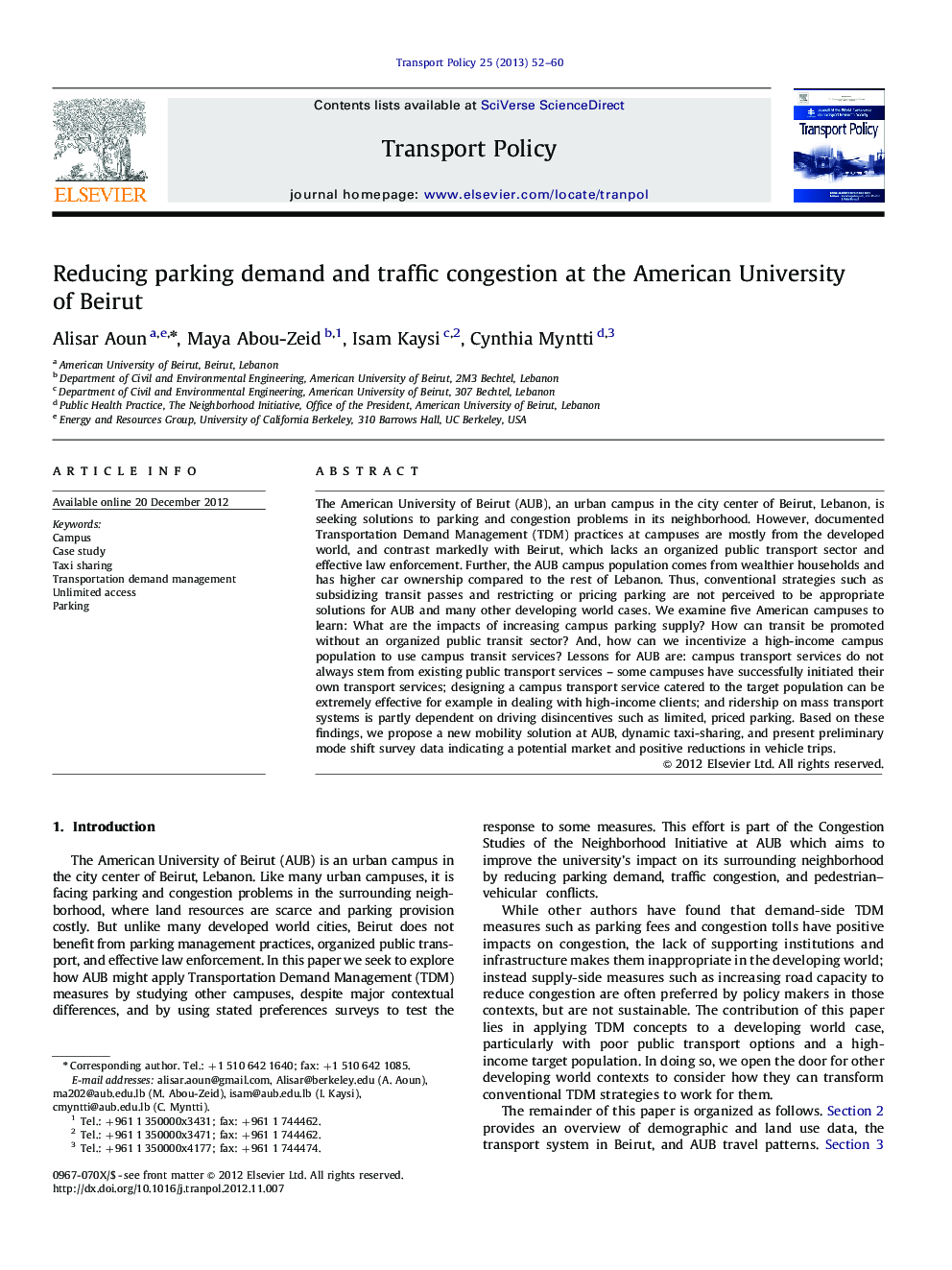| Article ID | Journal | Published Year | Pages | File Type |
|---|---|---|---|---|
| 1065007 | Transport Policy | 2013 | 9 Pages |
The American University of Beirut (AUB), an urban campus in the city center of Beirut, Lebanon, is seeking solutions to parking and congestion problems in its neighborhood. However, documented Transportation Demand Management (TDM) practices at campuses are mostly from the developed world, and contrast markedly with Beirut, which lacks an organized public transport sector and effective law enforcement. Further, the AUB campus population comes from wealthier households and has higher car ownership compared to the rest of Lebanon. Thus, conventional strategies such as subsidizing transit passes and restricting or pricing parking are not perceived to be appropriate solutions for AUB and many other developing world cases. We examine five American campuses to learn: What are the impacts of increasing campus parking supply? How can transit be promoted without an organized public transit sector? And, how can we incentivize a high-income campus population to use campus transit services? Lessons for AUB are: campus transport services do not always stem from existing public transport services – some campuses have successfully initiated their own transport services; designing a campus transport service catered to the target population can be extremely effective for example in dealing with high-income clients; and ridership on mass transport systems is partly dependent on driving disincentives such as limited, priced parking. Based on these findings, we propose a new mobility solution at AUB, dynamic taxi-sharing, and present preliminary mode shift survey data indicating a potential market and positive reductions in vehicle trips.
► Applicability of conventional TDM practices to the developing world is questioned. ► Practices at 5 American campuses are studied. ► TDM concepts are refashioned for a developing world case. ► Dynamic taxi sharing is presented as an appropriate solution in this context.
